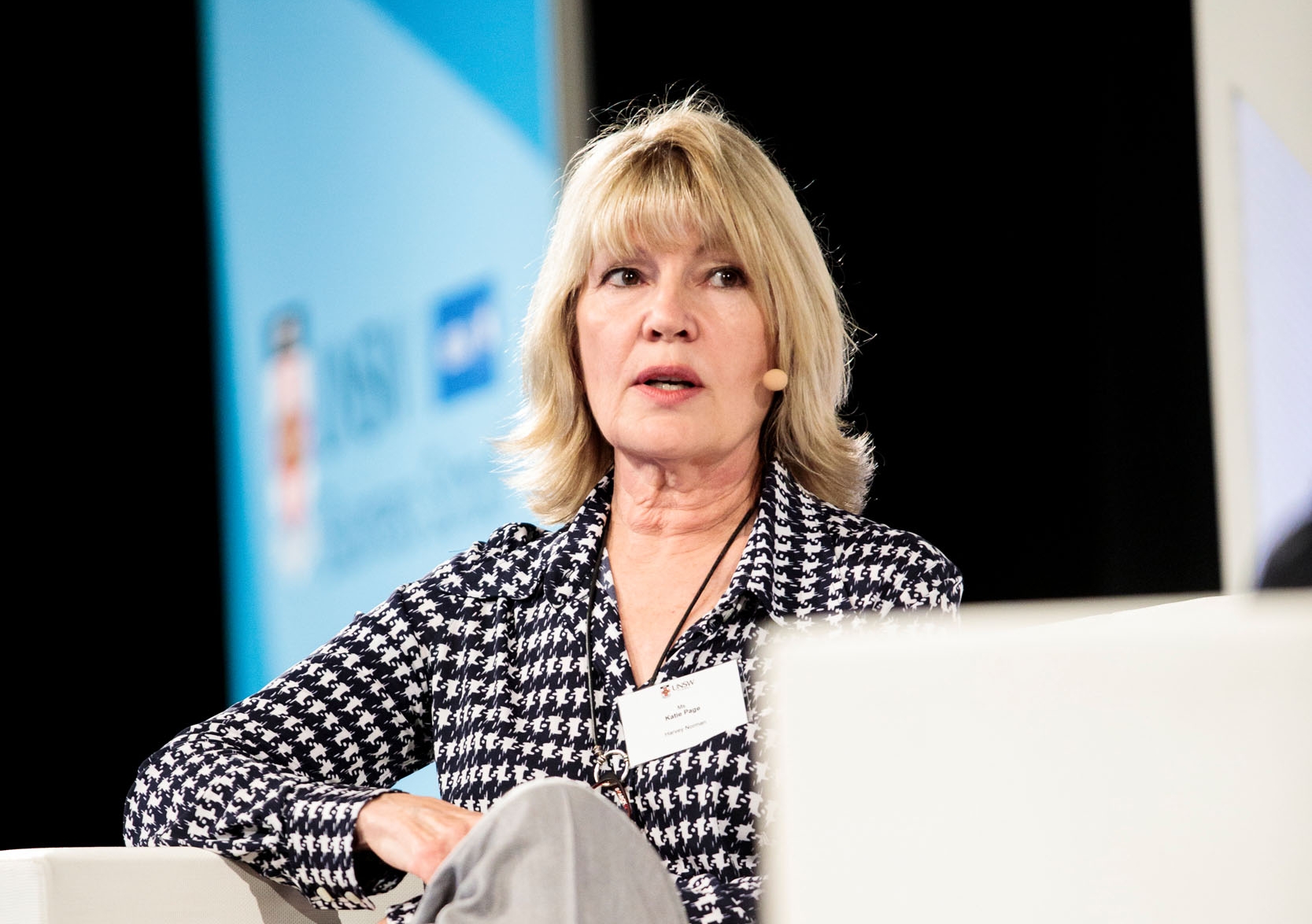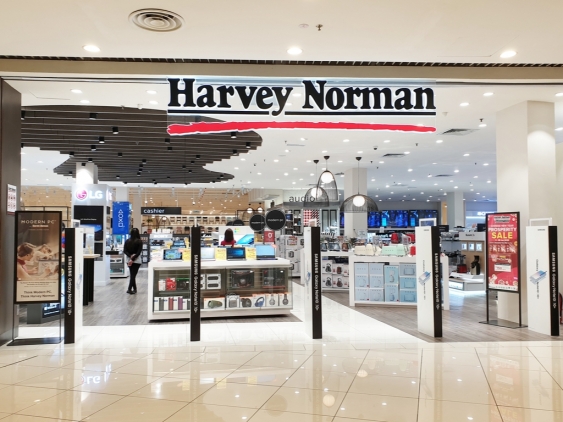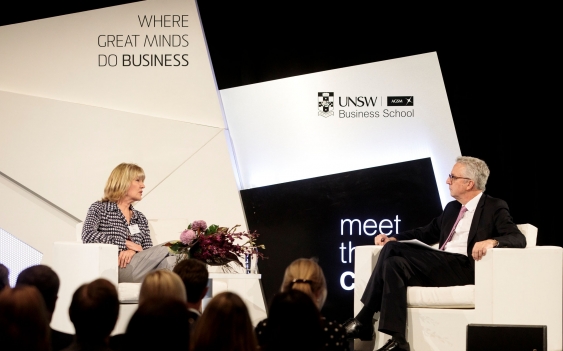Harvey Norman CEO on beating Australia’s retail slump
To be ahead of the current retail downturn, it is important to invest in your people, tap into emerging markets and build your flagship strategy, says Harvey Norman CEO Katie Page.
To be ahead of the current retail downturn, it is important to invest in your people, tap into emerging markets and build your flagship strategy, says Harvey Norman CEO Katie Page.

This is how Harvey Norman survived the global financial crisis (GFC) of 2008 and came out unscathed.
“The GFC was particularly hard for us but we did not lose anything. We worked on our business strategy to enter emerging markets. We have also been through SARS in Asia, so COVID-19 is not new for us,” says Katie Page, CEO of appliance and furniture giant Harvey Norman.
In such economic conditions, Ms Page says that “it is essential to keep investing in your employees. There is a sameness in the stimulus packages that have been implemented in different countries around the world – the focus is on small businesses and making sure that workers are paid.”
During the GFC, Harvey Norman had 600 people working in Ireland and the company chose to support them throughout the financial crisis.
“We’re now doing really well in Ireland and achieved a 20.3% profit increase. I think that companies that are not investing in their people are in trouble.”
Ms Page also emphasises that it is important for businesses to have a strong balance sheet.
“Many people are dismissive of a balance sheet when times are great. But we’ve been through a lot with 65% of our stores in country areas – we’ve been through droughts, floods, cyclones and bushfires within a short period of time. However, we feel reassured about the future of our company because we have a strong balance sheet. I am of the opinion that you have to put a similar emphasis on marketing and bank accounts.”
This is pertinent to every business today, she says, especially with the significant increase in retailers filing for voluntary administration, and the Australian economic downturn resulting from COVID-19 and the bushfire disaster.
Harvey Norman’s production has slowed due to temporary factory closures in China following the outbreak of COVID-19. However, Ms Page expects those companies’ supply and manufacturing will resume in a few weeks.
Own your flagship strategy
Throughout her time as CEO at Harvey Norman, Ms Page has adopted a hands-on management style and spent much of her time with global manufacturers and their designers.
“You cannot be in retail and not be hands-on. That’s what makes you successful. You need to be at the customer interface to know where the success of the company lies,” she says.
Her methods are well proven. During her 30 years at Harvey Norman, Ms Page has turned a national brand into a global success, with more than 220 Harvey Norman stores in eight countries.

A Harvey Norman store in Penang, Malaysia - one of the emerging markets for the retail giant.
"I spend a lot of time with global manufacturers and their design teams – not just their CEOs or the boards, but with their thinkers. We have some of the biggest brands in the world in our stores – Microsoft, HP, Apple, Samsung, LG, Electrolux – I’m in their head offices all the time and I insist that their design teams come to those meetings so we can see where they’re going.
“The most important thing in retail is to own your flagship strategy. An example is how our team at Harvey Norman designs the flagship store with the brands that we sell in mind. This takes place after meeting with the brands’ designers and knowing what products they have in the pipeline.”
At Harvey Norman, the team also thinks long term and prepares its business strategies five, 10 and 20 years ahead.
“Our goal is to keep growing in each country. We’re traders and technologists by nature. We want to fully understand our consumers’ needs, and this is why each country has its own team looking after the Harvey Norman brand. We are very localised.”
Should all retailers have an online presence?
Ms Page observes that many omnichannel brands around the world are spending significant amounts of their money on digital and online and neglecting their store presence.
“Many retailers miss the point that customers would not be walking through their stores if they had bought the product they’re looking for online,” Ms Page says.
“It is important to know what makes your business work for your customers’ advantage. Accessibility to products is key.”
While there is a surge in online shopping, more customers are buying products that they find are not tailored to their needs. “As a result, many retailers are only just realising that they need a store footprint to better cater to their customers’ preferences.”
“Retailers got themselves in a bit of a situation by breaking out their online sales versus their offline sales. In our company, there's no such thing as a pure online or offline sale. Most sales start offline and you would be surprised that most retailers do not track that.”
“We are open to however customers want us to engage with them, and wherever they want to deal with us. It’s not either/or – it’s all,” she said.

Katie Page in an interview with Mark Scott AO at UNSW's Meet the CEO event.
Meet the CEO event
The interview with Ms Page took place on 10 March 2020 as part of Meet The CEO, an event series hosted by UNSW Business School that provides insights from Australian and international business leaders.